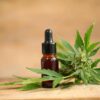
Breaking the Stereotype
Despite initial hesitations, medical marijuana has gradually gained acceptance within Utah’s healthcare community, marking a transformative shift in attitudes towards cannabis. This evolution has been fueled by growing evidence of the therapeutic benefits of cannabis, prompting a reevaluation of its role in patient care. By incorporating cannabis into medical practice, Utah is embracing a novel approach to treatment that resonates with healthcare professionals, cannabis advocates, and patients alike.
Utah’s journey towards embracing medical marijuana has been cautious yet forward-thinking. The state’s legislative landscape has adapted to meet the rising demand for alternative therapies, particularly for chronic conditions where traditional medicine may have limitations. This shift represents a significant milestone in Utah’s healthcare sector, opening up new avenues for treatment strategies, especially for patients grappling with chronic pain, epilepsy, multiple sclerosis, and other qualifying conditions.
Central to the therapeutic potential of medical marijuana are its cannabinoid compounds, notably Tetrahydrocannabinol (THC) and Cannabidiol (CBD), each offering unique benefits in symptom management and enhancing patient well-being. These cannabinoids interact with the body’s endocannabinoid system to modulate pain, reduce inflammation, manage seizures, and alleviate anxiety and depression, among other effects.
The Research Speaks for Itself
Research suggests that medical cannabis could serve as an alternative for individuals battling opioid addiction, highlighting a reduction in opioid prescriptions in states where medical cannabis is legal. This shift is particularly relevant for Utah, which has been significantly impacted by the opioid crisis, affecting communities across the state.
While the integration of medical marijuana presents promising advantages, challenges persist within Utah’s healthcare system. Concerns surrounding dosage, administration, and insufficient education among healthcare professionals need to be addressed. Organizations like NMC Utah are at the forefront of advocating for patient education, research, and guidelines to ensure the safe and effective use of medical cannabis.
Healthcare providers play a vital role in navigating this evolving landscape. Staying informed about the latest research, understanding legal considerations, and engaging in open discussions with patients about medical cannabis are essential steps. Recognizing medical marijuana as a potential component of patient treatment plans requires a comprehensive understanding of its usage, including potential interactions with other medications and side effects.
The incorporation of medical marijuana into Utah’s healthcare system represents an ongoing journey of exploration and adaptation. For patients, it offers a beacon of hope—a pathway to relief and recovery where conventional medicine may fall short. Medical professionals are encouraged to broaden their perspectives on treatment options and patient care in light of this evolving landscape.
The future of medical marijuana in Utah’s healthcare system appears promising, driven by a commitment to research, patient well-being, and an overarching goal of enhancing quality of life. Collaboration among healthcare providers, patients, and policymakers will be crucial in advancing the conversation, sharing knowledge, and unlocking the full potential of medical marijuana in promoting health and well-being.
For individuals grappling with medical conditions, the potential of medical marijuana brings not only relief but also the prospect of a brighter future. NMC Utah remains dedicated to ensuring that every patient has access to the care and information needed to make informed decisions about their health.
Keep Pushing Forward
In conclusion, the integration of medical marijuana into Utah’s healthcare landscape introduces innovative approaches to treating various medical conditions, offering hope and improved quality of life for many. As efforts continue to unlock its potential, collaboration among medical professionals, patients, and the wider community will be essential in overcoming challenges and harnessing the therapeutic benefits of cannabis effectively and responsibly.






